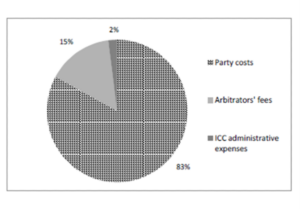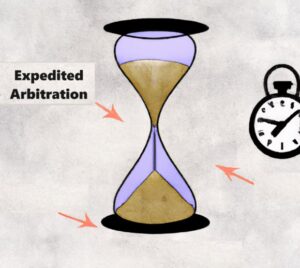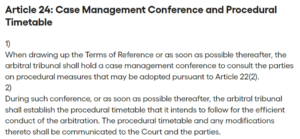For many parties, initiating ICC arbitration can seem like entering unfamiliar territory. The process is formal and structured, and the term arbitration itself may carry a sense of complexity, especially for those encountering it for the first time. While it is a well-established mechanism for resolving cross-border disputes, the procedural steps that follow the filing […]
ICC Arbitration
What Are the Recoverable Costs in ICC Arbitration?
Costs are among the most important considerations for parties in international arbitration proceedings.[1] Therefore, it is crucial for them to know in advance the categories of recoverable costs at the end of the arbitral process. These costs can generally be recovered from the losing party. In this respect, Article 38 of the Arbitration Rules of […]
ICC Emergency Arbitration
ICC emergency arbitration offers parties an alternative to state courts’ jurisdiction in seeking interim or conservatory relief. This procedure was introduced in 2012 with Article 29 of the ICC Rules and Appendix V.[1] The emergency arbitration provisions apply by default to arbitration agreements concluded after 1 January 2012 unless the parties have opted out.[2] The […]
Summary Procedures in International Arbitration
Summary procedures in international arbitration mean procedures by which the arbitral tribunal determines certain points of fact or law at an early stage of the proceedings, potentially dispensing with the need for further arbitration proceedings. Summary proceedings can be a blessing to a respondent facing frivolous claims that obviously lack merit, as a successful dismissal […]
Expedited Arbitration
Expedited arbitration (or fast-track arbitration) has gained traction in recent years, in response to the length and cost of traditional international arbitration. The first expedited arbitration scheme appears to have been introduced in the 1992 Arbitration Rules of the Geneva Chamber of Commerce and Industry Arbitration Rules (“CCIG”).[1] Today, most leading arbitral institutions have adopted specific […]
How to Commence an ICC Arbitration
Your company could not find a way to resolve a dispute it has with its business partner, and its agreement contains an ICC arbitration clause? Then, it may be time to commence an ICC arbitration. Commencing an ICC arbitration is not hard to do. Arbitration Clause to Commence an ICC Arbitration In order to commence […]
Document Production in International Arbitration
Document production is one of the most controversial yet essential steps in international arbitration. Since cases are generally decided based on documents rather than oral testimony, document production can be a powerful tool for discovering evidentiary material crucial to winning an arbitration.[1] It is not surprising that arbitral proceedings commonly include a document production phase. […]
Enforcement of Emergency Arbitration Decisions
Many leading arbitration institutions have adopted rules containing provisions regarding emergency arbitrators. Although the applicability of these types of provisions has been widely discussed, there is still little experience, especially regarding the enforcement of such decisions against a recalcitrant party. What Is Emergency Arbitration? The most widely used definition of emergency arbitration defines it as […]
Procedural Timetable under the ICC Rules
The procedural timetable is a procedural tool used by the parties to set timelines and deadlines for the arbitration proceeding. The procedural timetable is established by agreement of the parties during the case management conference and is subject to the approval of the arbitral tribunal. The 2021 ICC Arbitration Rules (“ICC Rules”) expressly set forth the […]









